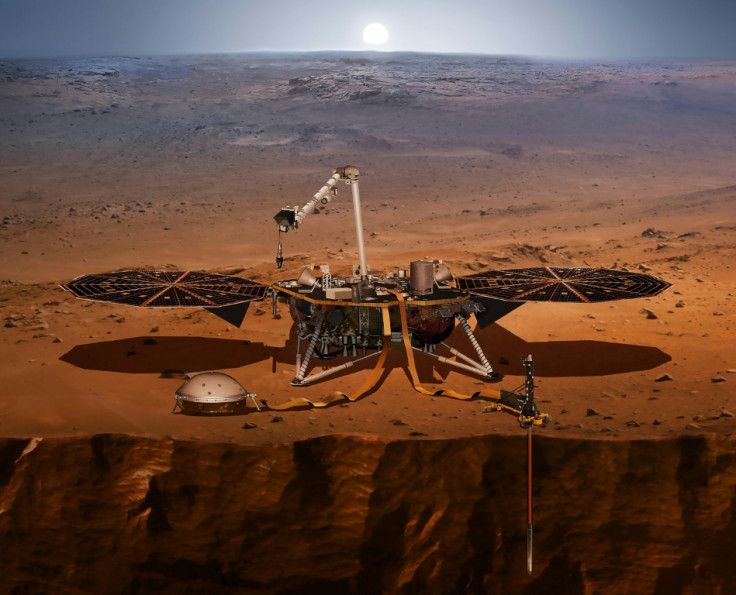Scientists discover lakes under Mars' ice caps with potential of microbial life
A team of researchers has discovered liquid water under the southern polar regions of Mars which could hold traces of life forms.
A team of researchers has discovered an abundance of water in the form of lakes below Mars' south polar ice cap. The discovery was made two years after the evidence of liquid water was found by Mars Express orbiter.
The team led by Roberto Orosei (INAF), with Elena Pettinelli (Roma Tre University) and Enrico Flamini (ASI - Italian Space Agency) studied new data gathered by the Mars Advanced Radar for Subsurface and Ionosphere Sounding (MARSIS) instrument onboard Mars Express. The study was conducted to establish "the extent of subglacial water in the region" after the 2018 discovery of liquid water under the ice in Ultimi Scopuli.
The findings of the study were published in the journal Nature Astronomy. As noted by Fox News, scientists have discovered three lakes which are roughly measured to be 6 miles across the Martian surface and nearly a mile deep. The cluster of lakes is situated approximately 12 miles away from the lake discovered in 2018.
"Not only have we confirmed the position, extent and intensity of the reflector identified in our 2018 study, but we also found three new highly reflective areas," said Pettinelli in a statement on ASI website.
Elaborating on the methodology of their research, Pettinelli confirms that they used "ground-based subsurface radars to detect the presence of subglacial lakes in Antarctica, Canada, and Greenland, and applied that methodology to the analysis of old and new MARSIS data." With the help of the data, it was discovered that "high-intensity reflections are caused by large pools of liquid water."
The scientists reveal that the "main lake" is surrounded by other lakes, but due to technical limitations, it is hard to say if they are interconnected. Meanwhile, laboratory experiments have confirmed that these water bodies are hypersaline that explain the persistence of water under the ice of the polar caps. Scientists explain that the discovery of lakes in the red planet could hint at traces of any life form.
"While the existence of a single subglacial lake could be attributed to exceptional conditions such as the presence of a volcano under the ice sheet, the discovery of an entire lake system implies that their formation process is relatively simple and common, and that these lakes have likely existed for much of Mars' history," Orosei said. "For this reason they could still retain traces of any life forms that could have evolved when Mars had a dense atmosphere, a milder climate and the presence of liquid water on the surface, similar to the early Earth. "

Nevertheless, the researchers insist that these thick ice sheets on the Martian surface deserve to be investigated in detail with intensified explorations of the polar regions of Mars. This can help them establish the composition and astrobiological potential of the subglacial lakes.
© Copyright IBTimes 2025. All rights reserved.





















